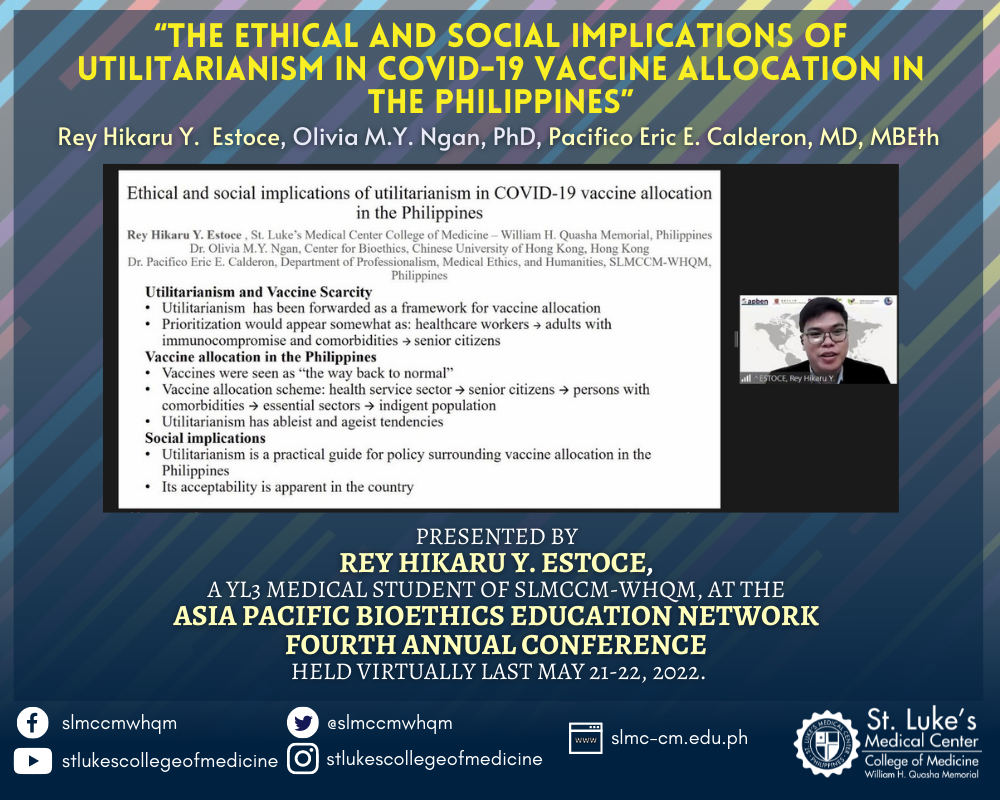YL3 medical student presented a paper he coauthored at the ABPEN Fourth Annual Conference
| June 22, 2022

Rey Hikaru Y. Estoce, a third-year medical student at St. Luke’s Medical Center College of Medicine – WHQM (SLMCCM-WHQM), presented a paper entitled “The ethical and social implications of utilitarianism in COVID-19 vaccine allocation in the Philippines” at the Asia Pacific Bioethics Education Network (ABPEN) Fourth Annual Conference. The said paper was co-authored by Dr. Olivia M.Y. Ngan of the Center of Bioethics at The Chinese University of Hong Kong and Dr. Pacifico Eric E. Calderon of the Department of Professionalism, Medical Ethics, and Humanities at SLMCCM-WHQM.
Congratulations to Rey Hikaru Y. Estoce and, his adviser, Dr. Pacifico Eric E. Calderon! Your SLMCCM family is proud of you!
**************************************************
If you are interested, here is the abstract of their paper:
“While the world is griped with the woes of the COVID-19 pandemic, several ethical issues arise that warrant discussion. One of these is the ethics of the allocation of scarce resources such as vaccines. This is a discussion of the merits, limitations, and ethical and social implications of utilitarianism as a framework for deciding on the allocation of vaccines, specifically in the non-vaccine-producing nation of the Philippines. A reassessment of utilitarianism is necessary for the enterprise of achieving equitable vaccine allocation. The central argument in this work is that rule utilitarianism, aimed at establishing rules producing the most benefit or good for the greatest number of people, is a practical framework in decision-making in terms of prioritization but is riddled with ableist and ageist tendencies. As such, complementing it with distributive justice appears to be essential in bolstering its ethical favorability. That is, the vulnerable groups who are not necessarily “beneficial” in the utilitarian view are deemed worthy of saving in the name of fair allocation. We also discuss critical social implications of utilitarianism, such as its documented acceptability across varying groups of people, and its compatibility with the socio-cultural-spiritual landscape of the Philippines and other Asian countries, notwithstanding the precedence of ethics over policy and social life.”
Click here to watch the full poster presentation.
**************************************************
The ABPEN aims to serve as an intellectual exchange platform bringing in medical educators involved in bioethics teaching in the Asia-pacific region. This year’s conference was hosted by The Chinese University of Hongkong and AMSA Monash Malaysia with the theme of “The New Norm of Professionalism, Bioethics, and Beyond”. The said event was held virtually last May 21-22, 2022.
